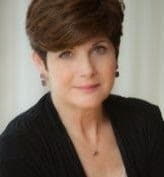
Those pesky ‘communication skills’ come up frequently as one of the most critical skills any professional, in any industry, at any organizational level can possess. While the ability to get the job done gets most of the attention, it is the lack of effective interpersonal skills required to work well with other people that can really hurt job performance.
If you want to have more effective conversations, or help your employees develop their communication skills, there are specific things that need attention:
- They are not you. Account for differences in age, gender, experience, cultural background and perspective. The meaning of words is not universal and communication preferences are not either.
- Try to be succinct with points you need to make: frequently a point is lost in overkill with language. People stop listening when a conversation becomes a monologue.
- Do you have something specific to say? Start with it! Don’t begin with small talk, or a general topic and then try to move to your specific point. Focus on the real and specific reason you want to talk. If it’s a hard conversation to have or difficult subject to hear, you don’t do anyone any favors by starting out being upbeat. Difficult negative things are best said right away. It is better to end on a positive note than to begin on one.
- Ask questions. Get information from others to understand how they think, how they see things, and why they behave as they do. Don’t asking questions for the purpose of confirming things that you already believe. Don't “test” people. Eliciting information from others and listening skills are important.
- Keep control of the conversation. If you are giving feedback use specific, concrete examplesof the point you want to get across. Tie those examples back to the main point you are making. When you use examples, make every effort to tie them back to the main point.
- Avoid saying ''yes” or “ok” as a way to terminate discussion on a point when what you really mean is “no” or “I don't want to talk about that now.” Say what you mean. Try to stay with the other person. Listen and concentrate on what is being said while it is being said, rather than thinking ahead to what you will say in response. Try to concentrate on them rather than on you.
- If you are delivering a necessary but difficult, negative, or hard message, rather than softening or diluting the content, soften or gentle the mode of presentation. The idea is that while the content must be paid attention to, you and the other person can work through it together.
- Avoid providing the solutions to problems. Sure – you might be able to identify the solution but it’s better to have involvement and ownership from the person it concerns (namely THEM!). Try not to jump too quickly to solutions to a problem from your point of view.
- Defensiveness, although often a natural reaction, does not help the communication process. To reduce it when and if it happens, try taking a deep breath, asking for more information from the other person about the topic, listening to what they say, and asking questions to get clarification about what the issue is. Slow the process down.
Take any of these actions and make it a focus of your communications behavior all week until it become a natural habit you can do without planning. Then add another behavior. With so many aspects of effectively communicating as part of having productive conversations, it should be obvious why this important set of skills is the foundation of professional success. When you work on improving critical interpersonal skills that get daily use, you will see your effectiveness improve daily too.



































